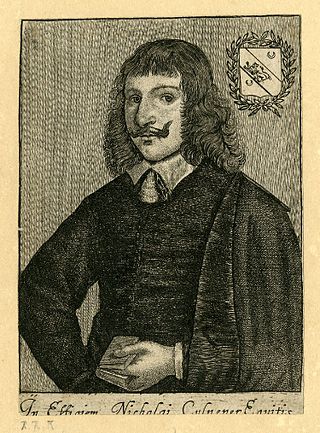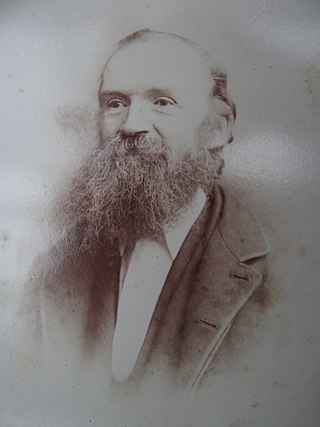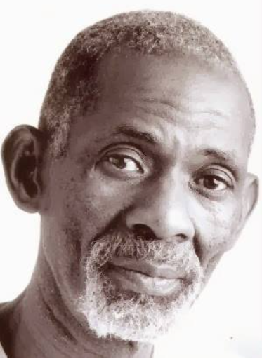
Herbal medicine is the study of pharmacognosy and the use of medicinal plants, which are a basis of traditional medicine. With worldwide research into pharmacology, some herbal medicines have been translated into modern remedies, such as the anti-malarial group of drugs called artemisinin isolated from Artemisia annua, a herb that was known in Chinese medicine to treat fever. There is limited scientific evidence for the safety and efficacy of many plants used in 21st century herbalism, which generally does not provide standards for purity or dosage. The scope of herbal medicine sometimes include fungal and bee products, as well as minerals, shells and certain animal parts.

Traditional medicine comprises medical aspects of traditional knowledge that developed over generations within the folk beliefs of various societies, including indigenous peoples, before the era of modern medicine. The World Health Organization (WHO) defines traditional medicine as "the sum total of the knowledge, skills, and practices based on the theories, beliefs, and experiences indigenous to different cultures, whether explicable or not, used in the maintenance of health as well as in the prevention, diagnosis, improvement or treatment of physical and mental illness". Traditional medicine is often contrasted with scientific medicine.

Nicholas Culpeper was an English botanist, herbalist, physician and astrologer. His book The English Physician is a source of pharmaceutical and herbal lore of the time, and Astrological Judgement of Diseases from the Decumbiture of the Sick (1655) one of the most detailed works on medical astrology in Early Modern Europe. Culpeper catalogued hundreds of outdoor medicinal herbs. He scolded contemporaries for some of the methods they used in herbal medicine: "This not being pleasing, and less profitable to me, I consulted with my two brothers, Dr. Reason and Dr. Experience, and took a voyage to visit my mother Nature, by whose advice, together with the help of Dr. Diligence, I at last obtained my desire; and, being warned by Mr. Honesty, a stranger in our days, to publish it to the world, I have done it."

A herbal is a book containing the names and descriptions of plants, usually with information on their medicinal, tonic, culinary, toxic, hallucinatory, aromatic, or magical powers, and the legends associated with them. A herbal may also classify the plants it describes, may give recipes for herbal extracts, tinctures, or potions, and sometimes include mineral and animal medicaments in addition to those obtained from plants. Herbals were often illustrated to assist plant identification.

Traditional Korean medicine refers to the forms of traditional medicine practiced in Korea.
The German Commission E is a scientific advisory board of the Federal Institute for Drugs and Medical Devices formed in 1978. The commission gives scientific expertise for the approval of substances and products previously used in traditional, folk and herbal medicine.

Li Shizhen, courtesy name Dongbi, was a Chinese acupuncturist, herbalist, naturalist, pharmacologist, physician, and writer of the Ming dynasty. He is the author of a 27-year work, found in the Compendium of Materia Medica. He developed several methods for classifying herb components and medications for treating diseases.
Ellen Evert Hopman is an author of both fiction and non-fiction, an herbalist, a lay homeopath, a lecturer, and a Mental Health Counselor who lives and works in Western Massachusetts. She is the author of several books and audio tapes on Paganism and Druidry, and three novels. She is a certified writing teacher with Amherst Writers and Artists and a multiple recipient of the Golden Oak Award. She was formerly a Professor of Wortcunning at the Grey School of Wizardry, where she taught herbalism, Celtic Neopaganism, Celtic history and Celtic lore. She is a professional member of the American Herbalist Guild. and a member of the Grey Council of Mages and Sages. She has taught Druidry and herbalism in the United States, Scotland, Ireland and Canada, and has been a speaker and workshop leader at numerous Neopagan and New Age events, and a subject of articles in The New York Times.
Dominion Herbal College is North America's oldest school of herbal medicine founded in 1926 in British Columbia, Canada by Dr. Herbert Nowell. Dominion Herbal College is a post-secondary institution accredited by the Private Career Training Institutions Agency (PCTIA) offering online and distance education programs.

The National Institute of Medical Herbalists (NIMH) is a professional body representing medical herbalists in the United Kingdom. It was first established as the National Association of Medical Herbalists in 1864, and now has members worldwide. As of 2020 it is the UK's largest and oldest regulator of herbal practitioners.
Arthur Lee "Tommie" Bass was an Appalachian herbalist who lived near Lookout Mountain, Alabama.

Duncan Scott Napier was a Scottish botanist, herbalist and businessman. Despite having a deprived childhood and being functionally illiterate until his early teens, he became an expert in herbal remedies and did much to establish herbalism as a recognised branch of medicine. The herbalist business that he founded stayed in his family for three generations and still exists today.
Eclectic medicine was a branch of American medicine that made use of botanical remedies along with other substances and physical therapy practices, popular in the latter half of the 19th and first half of the 20th centuries.
Shakoor v. Situ [2000] 4 All ER 181; [2001] 1 W.L.R. 410; (2001) 57 B.M.L.R. 178; Independent, May 25, 2000; is a first instance case in English tort law on the standard of care appropriate for an alternative medicine practitioner. Its controversial ruling elaborates on the "responsible body of medical men" test from Bolam v. Friern Hospital Management Committee.
The Irish Institute of Medical Herbalists (IIMH) is the professional organization for medical herbalists in Ireland. It was formally incorporated in 1990. The current criteria for membership of the IIMH is a BSc honours degree in herbal medicine which includes examinations in medicine and herbalism as well as supervised clinical practice. Members of the institute have the letters MIIMH after their names.
The history of herbalism is closely tied with the history of medicine from prehistoric times up until the development of the germ theory of disease in the 19th century. Modern medicine from the 19th century to today has been based on evidence gathered using the scientific method. Evidence-based use of pharmaceutical drugs, often derived from medicinal plants, has largely replaced herbal treatments in modern health care. However, many people continue to employ various forms of traditional or alternative medicine. These systems often have a significant herbal component. The history of herbalism also overlaps with food history, as many of the herbs and spices historically used by humans to season food yield useful medicinal compounds, and use of spices with antimicrobial activity in cooking is part of an ancient response to the threat of food-borne pathogens.

Frank Newman Turner, NDA, NDD, FNIMH, was a British pioneering organic farmer, writer and broadcaster, who, based on his experience of natural treatment of animals, later became a consulting medical herbalist and naturopath. His books Fertility Farming, Fertility Pastures, and Herdsmanship are regarded as classics of practical organic husbandry.
Laishram Nabakishore Singh is an Indian teacher, herbalist and physician of traditional medicine, known for his therapeutic protocol for kidney stones. He is reported to have the largest collection of renal stones in India, exceeding one million in number, which has earned him a mention in the Limca Book of Records. He is a recipient of several honours including the fourth highest Indian civilian award of the Padma Shri.

Alfredo Darrington Bowman, better known as Dr. Sebi, was a Honduran self-proclaimed herbalist healer, who also practiced in the United States in the late 20th and early 21st centuries. Bowman claimed to cure all disease with herbs and a plant-based alkaline diet based on various pseudoscientific claims, and denied that HIV caused AIDS. He set up a treatment center in Honduras, then moved his practice to New York City and Los Angeles. Numerous entertainment and acting celebrities were among his clients, including Michael Jackson, Lisa 'Left Eye' Lopes, and John Travolta.
Traditional Cambodian medicine comprise several traditional medicine systems in Cambodia.









